Джон Краули - New Haven Noir
Здесь есть возможность читать онлайн «Джон Краули - New Haven Noir» весь текст электронной книги совершенно бесплатно (целиком полную версию без сокращений). В некоторых случаях можно слушать аудио, скачать через торрент в формате fb2 и присутствует краткое содержание. Город: New York, Год выпуска: 2017, ISBN: 2017, Издательство: Akashic Books, Жанр: Детектив, на английском языке. Описание произведения, (предисловие) а так же отзывы посетителей доступны на портале библиотеки ЛибКат.
- Название:New Haven Noir
- Автор:
- Издательство:Akashic Books
- Жанр:
- Год:2017
- Город:New York
- ISBN:978-1-61775-541-5
- Рейтинг книги:5 / 5. Голосов: 1
-
Избранное:Добавить в избранное
- Отзывы:
-
Ваша оценка:
- 100
- 1
- 2
- 3
- 4
- 5
New Haven Noir: краткое содержание, описание и аннотация
Предлагаем к чтению аннотацию, описание, краткое содержание или предисловие (зависит от того, что написал сам автор книги «New Haven Noir»). Если вы не нашли необходимую информацию о книге — напишите в комментариях, мы постараемся отыскать её.
New Haven Noir — читать онлайн бесплатно полную книгу (весь текст) целиком
Ниже представлен текст книги, разбитый по страницам. Система сохранения места последней прочитанной страницы, позволяет с удобством читать онлайн бесплатно книгу «New Haven Noir», без необходимости каждый раз заново искать на чём Вы остановились. Поставьте закладку, и сможете в любой момент перейти на страницу, на которой закончили чтение.
Интервал:
Закладка:
Lionel, from Lincoln, Nebraska. Big-boned, loose-limbed, ambling down the sidewalk oblivious — a creamy-skinned, bright-eyed, howdy-there-how-ya-doin’ friendly Midwesterner. Black-framed glasses on an open face. Big, outgoing, cheerful. Carrying his French horn everywhere. It was practically attached to him, and he was here because of it. Recruited by all the Ivies for his French horn prowess.
The world had always been his oyster, you could tell. His family were rich corn and soybean farmers. Farmers with thousands of acres. The kind of farmers who took frequent trips to Europe and the Far East. Life an ongoing project in growth and learning.
He was the kind of Yalie who comes east to school and maybe finds a pretty wife (prime breeding stock), and after graduation heads to Europe for more cultural education, maybe finds a European wife instead, returns to the Midwest eventually to take over the family holdings and tend them for the next generation. Lionel let drop once that his family had loaned some money to a bright young fellow, name of Warren Buffett, and had gotten some stock shares in return. In short, the kind of Yalie you can’t make up. And I’m sure that when he told his folks, I’m going to live off campus, Ma and Pa, they had a certain bon-vivant vision of it that did not match the reality of New Haven, 1976.
Lionel was, in short, a target.
Might as well have painted a bull’s-eye on his French horn case.
Although they never took the French horn. They didn’t want a French horn. They didn’t even know what a French horn was. They wanted his wallet. They wanted his new sneakers. They wanted his suede jacket.
It was a certain group of kids. I’d seen them, and managed to avoid them. They swarmed out of nowhere on their bikes, in their hooded sweatshirts, yelling and laughing and posturing for each other, intimidating girls and the elderly, and then disappearing into the housing projects or alleys just as quickly. Street guerrillas. A gang in its formative stage. A project for some enterprising Yale anthropology major with a suicide wish.
Lionel, unlike the rest of us, insisted on reporting it every time. That was the proper thing to do. So the weary cops would come out, hold their pads in front of them, and dutifully take down the information, looking at Lionel like he was from another planet, which he clearly was.
Beyond the insult of being intimidated by skinny, arrogant, undernourished fifteen-year-olds, privileged Yalies could of course absorb the forfeiture of a few material goods. Part of me thinks those little Edgewood hoodlums knew that, and it peeved them to see Lionel with new sneakers and a nice new jacket a few days later, and that’s why they upped their game.
And in a way, this is where this story really begins:
With Lionel coming in our front door one evening, left ear and head bleeding profusely, shirt collar and right sleeve ripped, scratches on his face and hands.
As soon as he was safely inside, he slid down the wall in the front hall in relief, and we gathered around him as soon as we saw what had happened.
“Jesus, Lionel, what the hell!”
“Whoa.”
“Oh man.”
Roger hustled to the kitchen and brought back a couple of wet towels to start cleaning up the wounds, to get the blood off and see what we were dealing with.
Lionel said nothing in response. Smiled up at us dumbly, vacantly, probably a little in shock. Then shook his head in annoyance, embarrassed in that Midwestern way to be drawing so much attention.
The cops got there pretty quickly.
Lionel did his best to describe the kids. “Three of them, officer. About fifteen years old.” He described their sweatshirts. Gray. Baggy jeans. He didn’t remember much more. “A lot was happening, officer.”
I noticed that Lionel didn’t mention their race. But for cops in that neighborhood at that time, you didn’t have to. In that Edgewood section of New Haven, 1976, you’d only mention if they weren’t black.
“How’d you get the head wound?”
“The one karate-kicked me.”
Wow.
“Kung fu kind of thing. I was not expecting it,” said Lionel, formally.
Jesus. Trying it out on you. Like kicking an inflatable clown.
The problem was, we learned, the cops couldn’t do much. “Look, if you’re right and they’re fifteen, then it’s juvenile. They’re not yet sixteen. Thing is, they didn’t pull any weapons, they know what they’re doin’, these kids, they’ve already learned what they can and can’t get away with as far as the law. That’s why he karate-kicked you. That’s why they punched you. ’Cause that’s not gonna land ’em in anything too serious.”
Officer Perez, I remember. Stocky, bushy mustache, alert black eyes. A messenger, a repository of street knowledge. Translating it all for us.
“See, their parents don’t trust us, think we’re the enemy, so they instruct the kids to lie to us, and they defend the kids, accuse us of exaggerating the events and even fabricating the charges, and as juveniles they and their parents retain a lot of rights, so a lot of times we can’t even get to square one with kids like this. We’ll go look for them, Mr. Patton, and we might even find them, and might even get them into the juvie system, with your testimony and if you’re willing to skip a lot of class time, but I do want to point out to you that when they learn it was you who brought charges, and they go back home as they eventually will, they’re only gonna have it in for you more.”
I find this line of logic infuriating, of course, but Lionel has a completely different reaction, which trumps my fury.
Lionel adjusts his glasses. “Well, look, they’re not bad kids, really.”
What?! Kids who just karate-kicked you in the head? Punched you in the face?
Perez stops writing for a moment. Clearly distracted by what he’s just heard.
“I mean, look what they’re faced with. The deck is stacked against them,” says Lionel, who looks at the cops, at us, and then reveals the rest: “I asked them why they were doing this.”
The second cop — Landry, tall, freckled — is genuinely confused. He blinks twice, trying to understand. “Wait. You asked them... why?”
“Yes. Why are you doing this, fellas? I wanted them to explain themselves.”
Fellas. I could hear him saying it. Good God.
“I mean, you know, beyond the sneakers and the jacket,” says Lionel. “In a larger sense. Why?”
Wanting three fifteen-year-old thugs, apparently, to stop and examine their own motives. To look into their own souls.
Perez taps his pencil against his chin a couple of times. “During the attack, you asked them why? ”
I see the cops exchange glances with one another, and then Perez glances at me.
“My questions only seemed to make them angrier,” Lionel acknowledges.
Making philosophical inquiries of fifteen-year thugs on Edgewood Avenue.
“ Why did they do this, officer? Why do they behave this way?”
Now turning the philosophical inquiry to the New Haven Police Department.
Perez looks at me. Asks wordlessly: What planet is your roommate from?
Nebraska, officer. The planet of Nebraska.
“I’d like to help those kids somehow, officer.” Blood still running down the side of his head. It hasn’t fully coagulated yet. “I’d like to change things for them somehow. Clearly they need help.”
Perez has had as much as he can handle. He takes a breath. “I think the most helpful thing you can do, Lionel, is stay out of their way. Be alert. Avoid them. I think that might be the most helpful behavior right now.”
When I close the door behind the cops as they leave, Perez turns back toward me and says, somewhere between annoyance and alarm, “Tell your pal to cut out the humanitarian relief effort.” He peers at me warningly. “Gonna get his ass killed.”
Читать дальшеИнтервал:
Закладка:
Похожие книги на «New Haven Noir»
Представляем Вашему вниманию похожие книги на «New Haven Noir» списком для выбора. Мы отобрали схожую по названию и смыслу литературу в надежде предоставить читателям больше вариантов отыскать новые, интересные, ещё непрочитанные произведения.
Обсуждение, отзывы о книге «New Haven Noir» и просто собственные мнения читателей. Оставьте ваши комментарии, напишите, что Вы думаете о произведении, его смысле или главных героях. Укажите что конкретно понравилось, а что нет, и почему Вы так считаете.
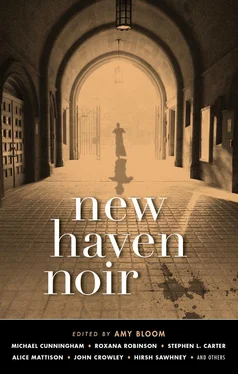
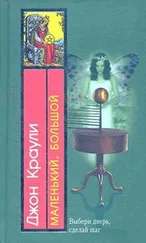
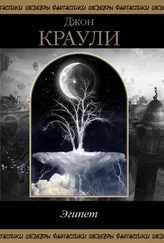


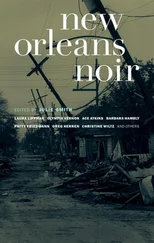
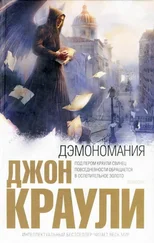
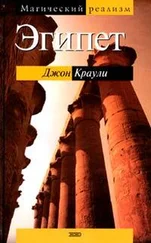
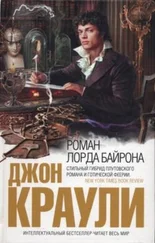

![Джон Краули - Ка - Дарр Дубраули в руинах Имра [litres]](/books/406053/dzhon-krauli-ka-darr-dubrauli-v-ruinah-imra-litre-thumb.webp)

